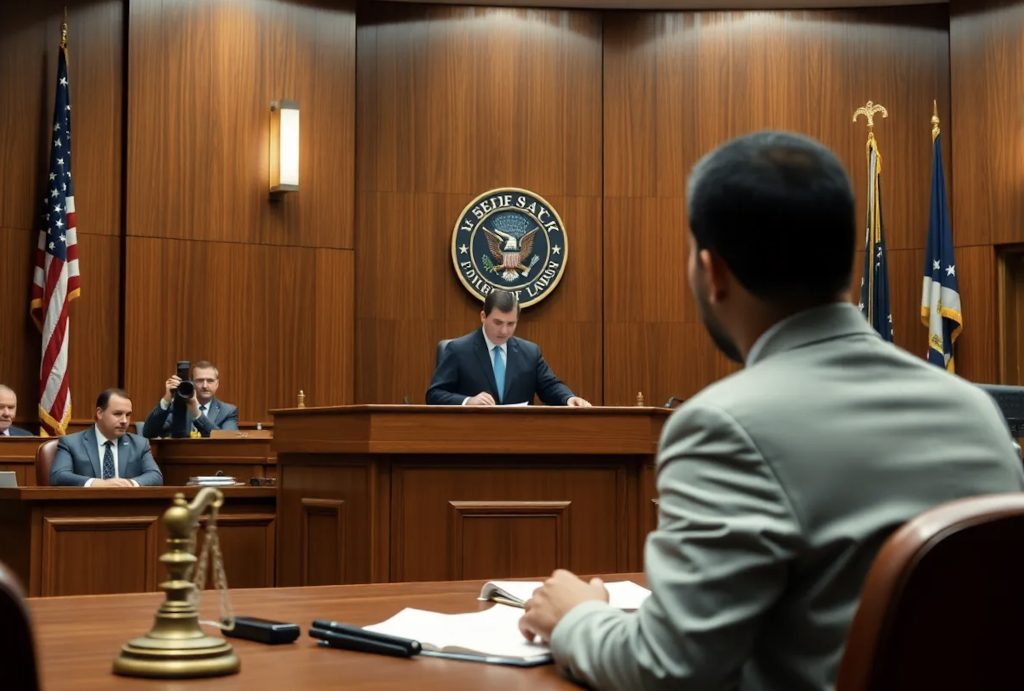SPEAKIN’ OUT NEWS

BIRMINGHAM, Ala. — A federal judge has ordered Alabama’s largest county to redraw its commission districts, ruling that the map was unconstitutional because it relied too heavily on race in determining political boundaries.
In a decision issued Tuesday, U.S. District Judge Madeline H. Haikala found that the Jefferson County Commission’s 2021 redistricting plan violated the Fourteenth Amendment by “packing” Black voters into two districts, thereby limiting their political influence across the county. Black residents make up about 40% of Jefferson County’s population, yet under the disputed plan they were concentrated in just two of the five commission districts.
“Because the 2021 plan violates the Fourteenth Amendment’s protection against racial gerrymandering, the Court permanently enjoins the Commission and its agents from using the 2021 plan in Jefferson County Commission elections,” Judge Haikala wrote in her ruling.
The commission, which currently consists of three Republicans and two Democrats, oversees a broad range of local services that directly impact residents’ lives, including infrastructure, health, and public safety. With Birmingham at its center, Jefferson County is not only the state’s most populous county but also home to its largest metropolitan area. A newly drawn map could significantly shift the balance of political power in the region.
Plaintiffs Welcome the Decision
The lawsuit challenging the 2021 map was filed in 2023 by local residents and voting-rights advocates. Cara McClure, lead plaintiff and executive director of the Faith and Works Statewide Civic Engagement Collective, celebrated the ruling as a long-overdue step toward fairness.
“The County Commission is responsible for so many things that impact our everyday life. The main thing is making sure every voice and every vote is heard and counted. And that’s not what has been happening,” McClure said. “I’m looking forward to the commission coming to the table to finally draw a map that is fair to Black voters in the county.”
Legal and Advocacy Perspectives
Kathryn Sadasivan, assistant counsel with the NAACP Legal Defense Fund, said the county’s redistricting process deliberately maintained racial ratios across all five districts, undermining the rights of Black voters.
“It’s a problem of not just those two districts that were maintained at supermajority Black status without consideration of what the Voting Rights Act required, but also an explicit attempt to maintain the racial ratios of Black voters to white voters in every other district,” Sadasivan explained.
Judge Haikala acknowledged that the outcome might have been different if the county had shown evidence that high Black voter percentages were needed to ensure Black communities could elect candidates of their choice. “But the commission offered no such evidence,” she noted.
What Comes Next
The court has given Jefferson County and the plaintiffs 30 days to file a report outlining a remedial redistricting plan. In response to the ruling, County Attorney Theo Lawson said officials are “currently reviewing the order to determine next steps.”
Jefferson County’s place in the nation’s civil rights history lends added weight to the decision. Birmingham was the site of some of the most infamous moments of the Civil Rights Movement, including the 1963 bombing of the 16th Street Baptist Church, which killed four girls and galvanized the fight for equality.
Today, the county has transformed into a major economic hub, fueled by banking, healthcare, and industry. But the court’s ruling is a reminder that the fight for fair political representation remains ongoing in a place where struggles over race and democracy have long shaped history.




